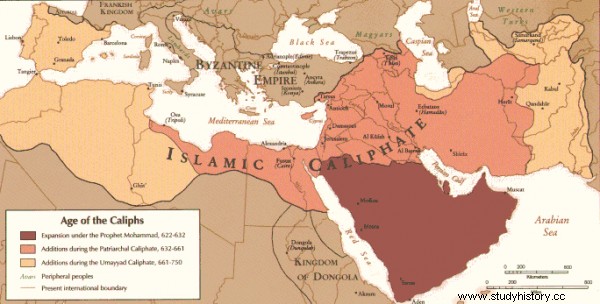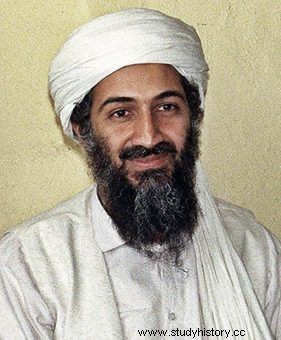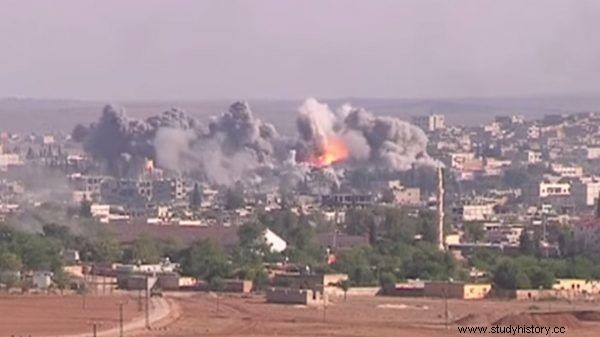It is almost impossible for a Western cultural individual to understand the frustration and hatred of radical Muslims towards anyone who is not a Muslim. Former Mossad chief tells how modern terrorism arose and why nobody should feel safe ...
Islam took many religious aspects out of Judaism and Christianity. Born in the 7th century in the desert part of the Arabian Peninsula, he managed to expand and conquer half of the world, creating a superpower, the Arab caliphate. Muslim conquerors spread the new religion by word or deed throughout the caliphate. Islam flourished economically, culturally and scientifically, greatly enriching humanity at that time.
More and more victims
The Islamic power survived as the Ottoman Empire until the First World War, when it suffered a humiliating defeat; after nearly a thousand and three hundred years of power and greatness, it was torn to shreds by the Western colonial powers.
With this background in mind, one can and must understand the depth and intensity of the desire to restore Islam to its former status while being aware that people are most strongly bound not by politics, community or economic status, but by religious solidarity (...).

The history of the expansion of Islam on the map of modern countries.
The concept of jihad has many meanings and interpretations in Islam, ranging from spiritual references, such as spiritual empowerment in Orthodox Judaism, to the willingness to commit suicide in the name of spreading Islam. In a world of jihadist global terrorism, suicide by sacrifice is considered a divine commandment; a martyr in the name of Allah becomes a saint (shahid) and his family is guaranteed financial support and respect from the community.
The phenomenon of the individual suicide bomber has greatly increased the overall potential threat of jihadist terrorism, and all the more it confirms the principle "fewer and fewer people can kill more and more victims" . The suicide attack on the World Trade Center in New York and the Pentagon in Washington proves this most emphatically; nineteen bombers killed thousands of civilians (…).
Global Holy War
Global radical Islamic organizations like Al-Qa'ida and ISIS have confronted Western democracies by contributing a variable that did not exist during conventional wars or the era of classical terrorism. Terrorist organizations are amorphous, located in a non-covered virtual world, with no headquarters or a clear hierarchy.
They are connected through the Internet, through which they communicate with their members, co-conspirators, followers and supporters around the world. The Internet spreads their message through propaganda networks, recruits, trains and provides the production of various types of weapons. Since they cannot exist without even a scrap of territory, they are constantly looking for places to nest - politically unstable or inhabited by allies.

The text is an excerpt from the book by Sabataj Shawit “I was the head of the Mossad. A game for safe Israel ”, which was published by Dolnośląskie Publishing House.
These could be, for example, the territories of Palestinians from which attacks are launched by Palestinian terrorist organizations, or areas of southern Lebanon taken over by Hezbollah, to the concern of the Lebanese government, but with the support of Syria and Iran. Sudan comes into play, where Ibn Ladin found an ally in the person of Hasan al-Turabi, who provided him and his people with a base - not only out of sympathy, but also for money. It could also be Afghanistan, where Ibn Ladin has bought the Taliban government to control the country. Part of the contract was the right of residence and the base of Al Qa'ida's operations.
The whole planet is at stake where the members of the organization and their infrastructure are scattered as it is today, after the US military operations after September 11th.
"Pathetic country"
The Israeli government has always proclaimed that countries from which terrorists launch attacks bear the burden of responsibility as they do not prevent those from using their territory. Hence Israel believes it has the right to fight terrorist organizations in the territory of the countries providing them with refuge. He was condemned more than once for this policy by the enlightened peoples of the world (...).
The conflict between Al-Qa'ida and Israel is about ten years old. Al-Qa'ida's hostility towards Israel was not caused by any provocation of the other side, its roots lie in a radical Islamic ideology, according to which Jews have no right to exist and their elimination is a religious duty.
In earlier statements, Ibn Ladin hinted that Israel is only on the third place on his list of priorities, calling it a "pathetic state" without meaning. In an interview a few years before the September 11 attacks, he even said that if the Americans left Saudi Arabia, he would be willing to sign a peace agreement with Israel!

Osama bin Laden, head of al Qaeda killed by the Americans.
It seems that the real bond between Ibn Ladin and Palestinian terrorists, members of the Islamic jihad and Hamas, was established when Ibn Ladin lived in Sudan in the first half of the 1990s. Palestinian terrorists have reached Al-Qa'ida's training camps in Afghanistan. Some of them returned to Israel with the mission of establishing Al-Qa'ida's secret cells.
This, however, did not lead to any real terrorist actions until 2002, when an Israeli-owned hotel in Mombasa was attacked and an Israeli plane also taking off from Mombasa was fired upon. These attacks were a milestone in the Israeli counter-terrorism, which until then was generally confined to the Middle East, occasionally reaching elsewhere, but only for specific, individual missions. The attacks in Mombasa forced Israel to join a club of US-led countries that fought terrorism beyond their borders.
A multi-headed, multi-armed beast
This new reality sets current terrorism apart from anything we have ever known before. It has a global dimension, without borders, headquarters, and no conventional military. The new terrorist organization is lightly armed, mobile and knows how to adapt quickly and cheaply as soon as it notices any change in the enemy. It cannot be attacked by traditional methods. He's a very virtual opponent.
Historically, he was closest to the Comintern in the years 1920–1940. The Comintern was a multi-headed, multi-armed beast operating without a clear hierarchy, chain of command, or an orderly system of decision-making, command, and reporting. Anyone who sympathized with the vision and goals of the organization considered it a duty to take action to implement this vision, even without a clear organizational or hierarchical framework.
The same could be said of Al-Qaeda or ISIS today - with one difference: the common denominator of those who identified with the Comintern was communism and secularism, while the common denominator of those who identified with Al-Qa'q 'they go and ISIS, there is radical Islam (…).

Coalition attack on ISIS positions around Kobane, 2014
Global media is contributing to the potential threat of radical Islam. In a world that is completely transparent, global village and where any two points on the map can be connected at any time, terrorist attacks appear on TV screens and radio waves as the number one topic.
In other words, global Islamic terrorist organizations get a free platform that transmits their message, propaganda and threats, which sows fear and dread, which further supports the destabilization and uncertainty already present in the world.
Source:
The text is an excerpt from the book by Sabataj Shawit I was the head of the Mossad. A game for safe Israel , which has just been released by Wydawnictwo Dolnośląskie. This is a first-hand account of Israel's secret and open wars.
